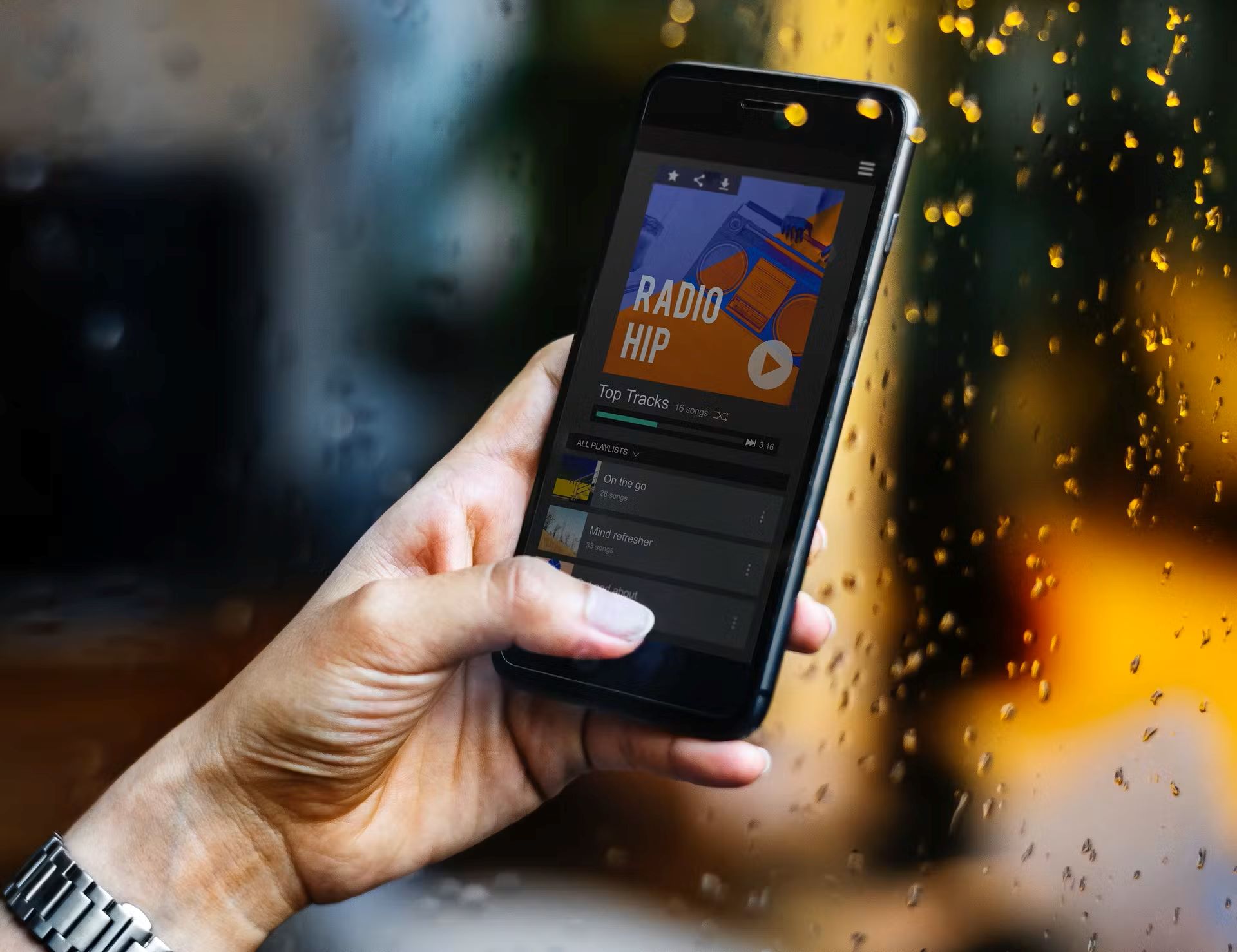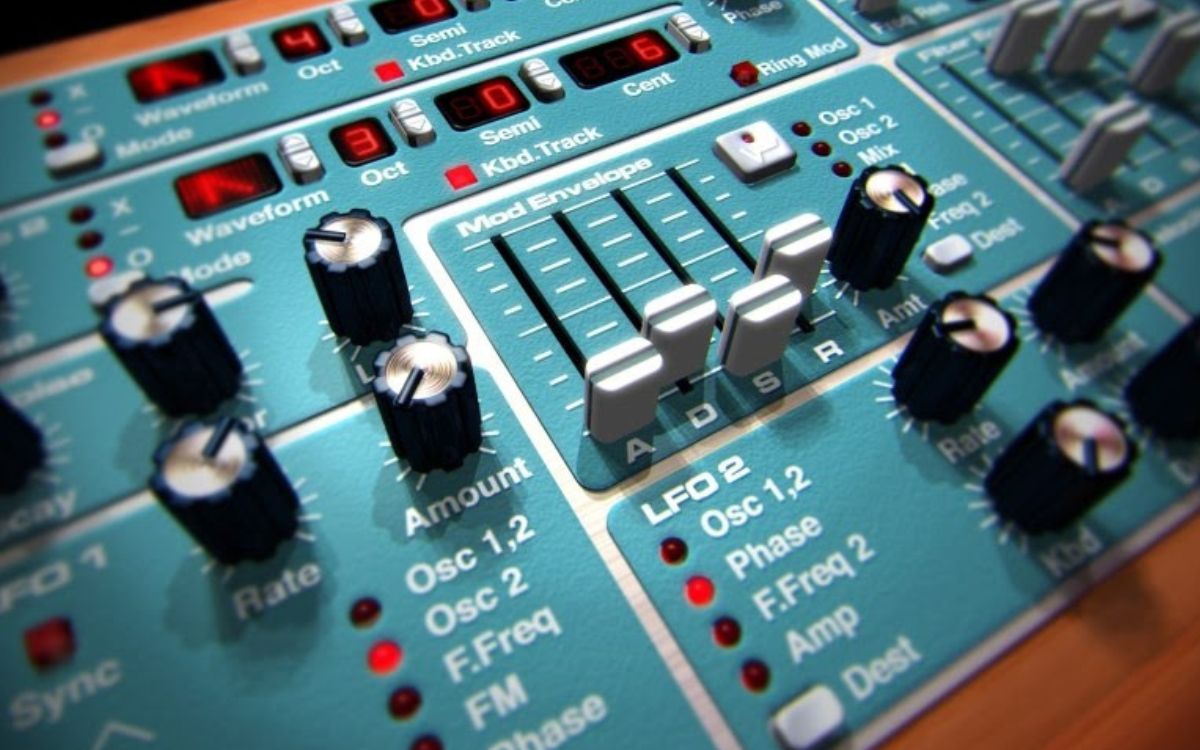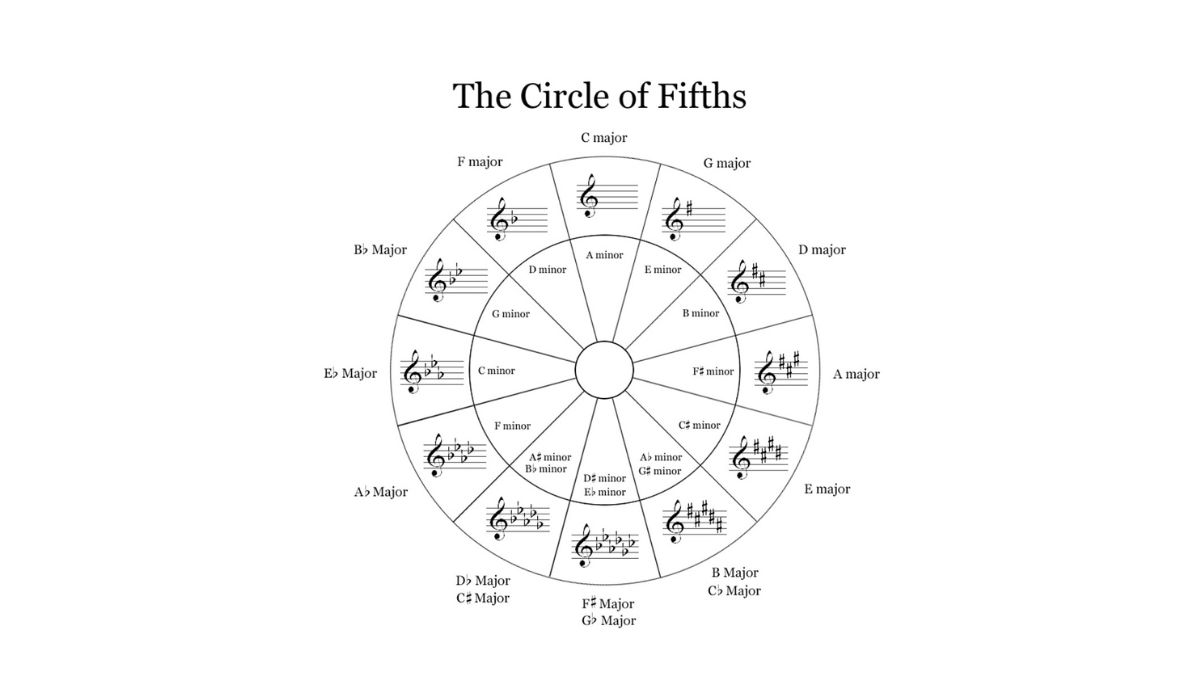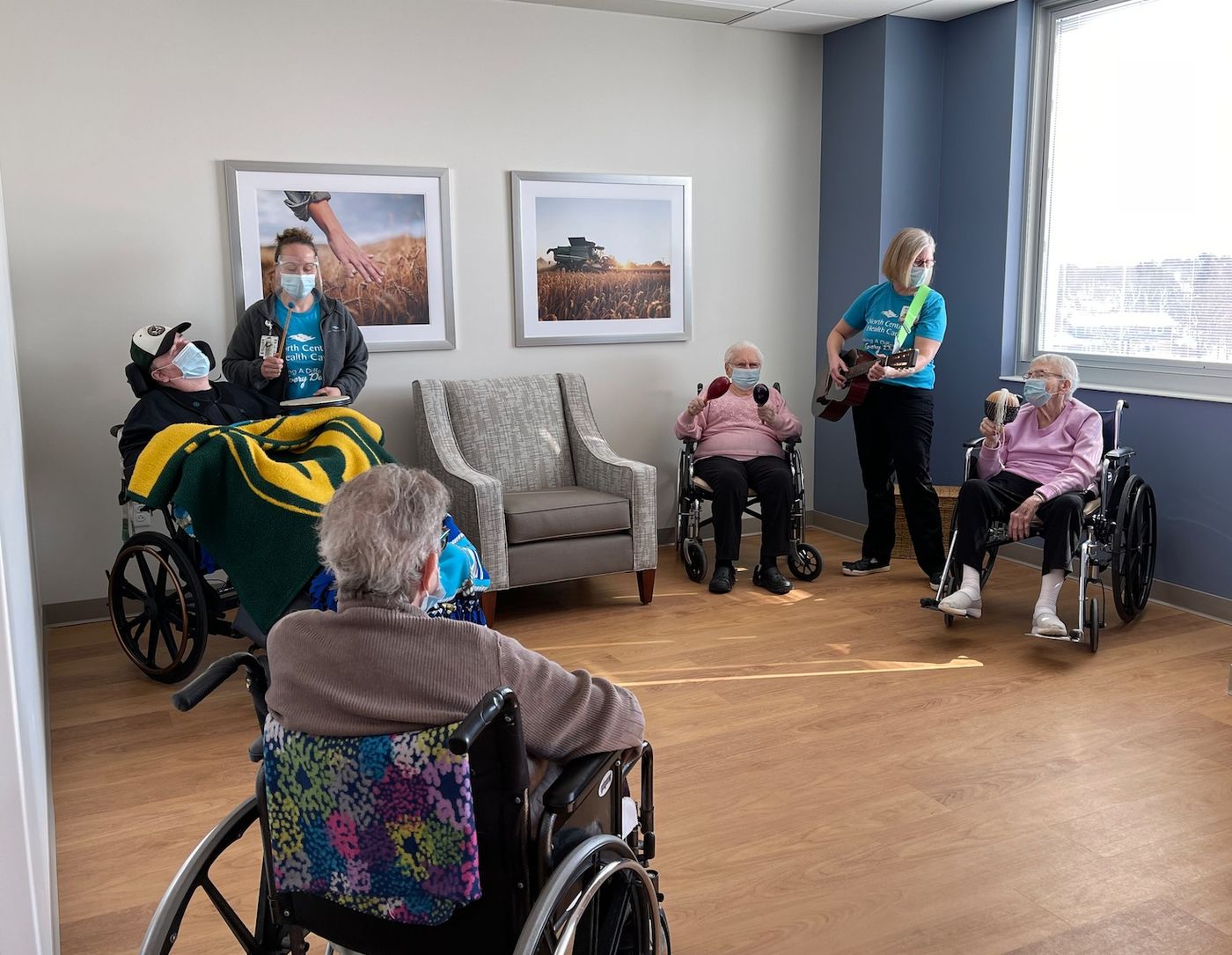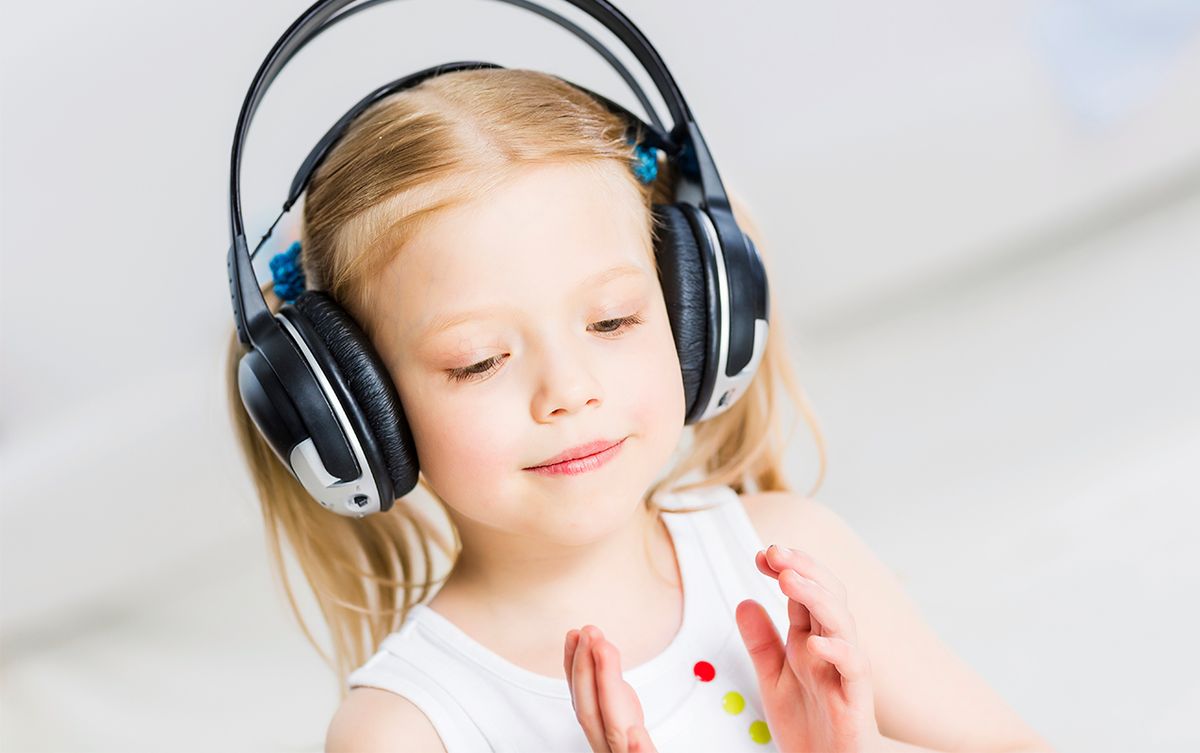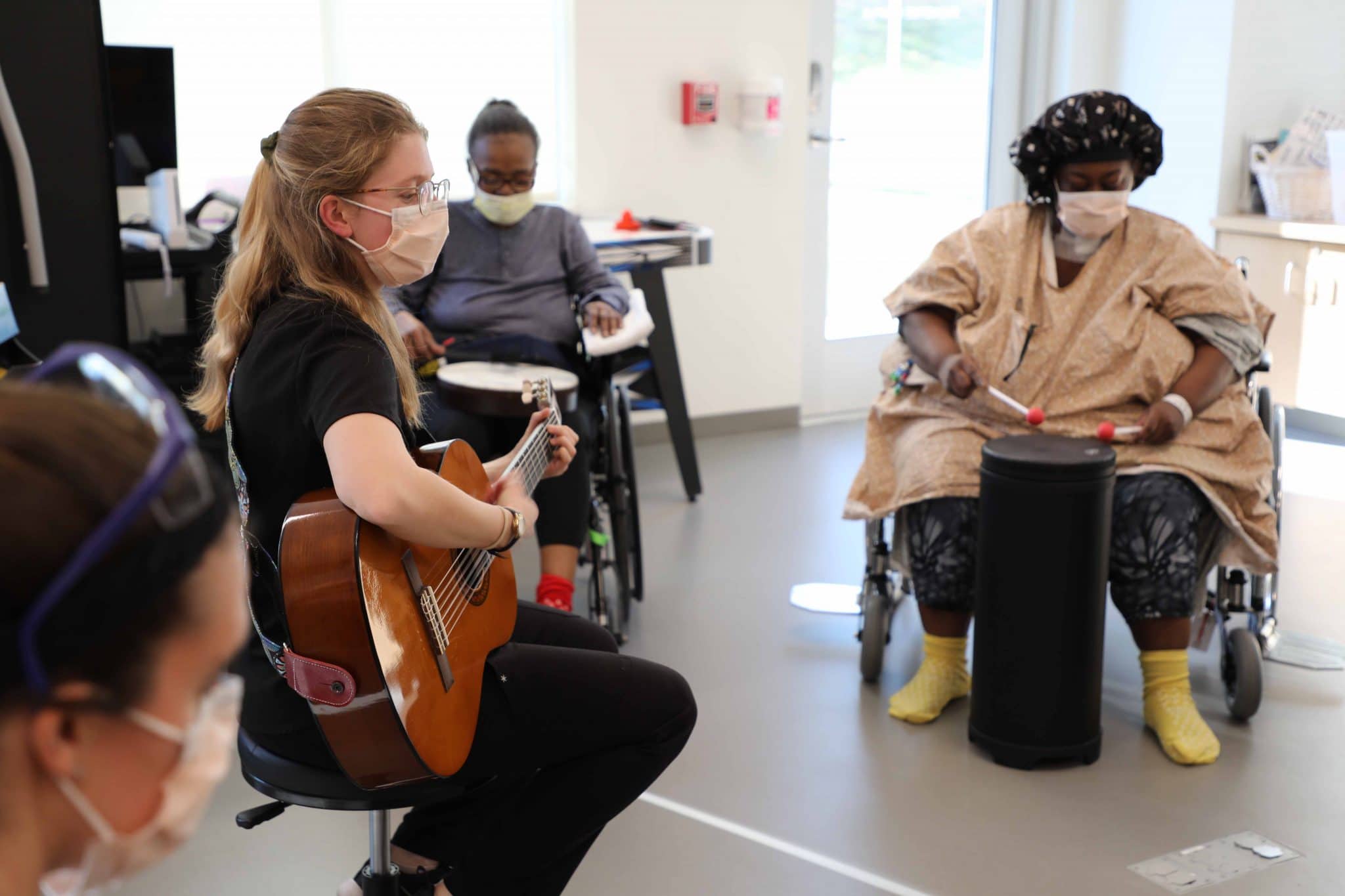Home>Events & Info>Music Therapy>Reasons Why Music Therapy Should Be Available In Schools
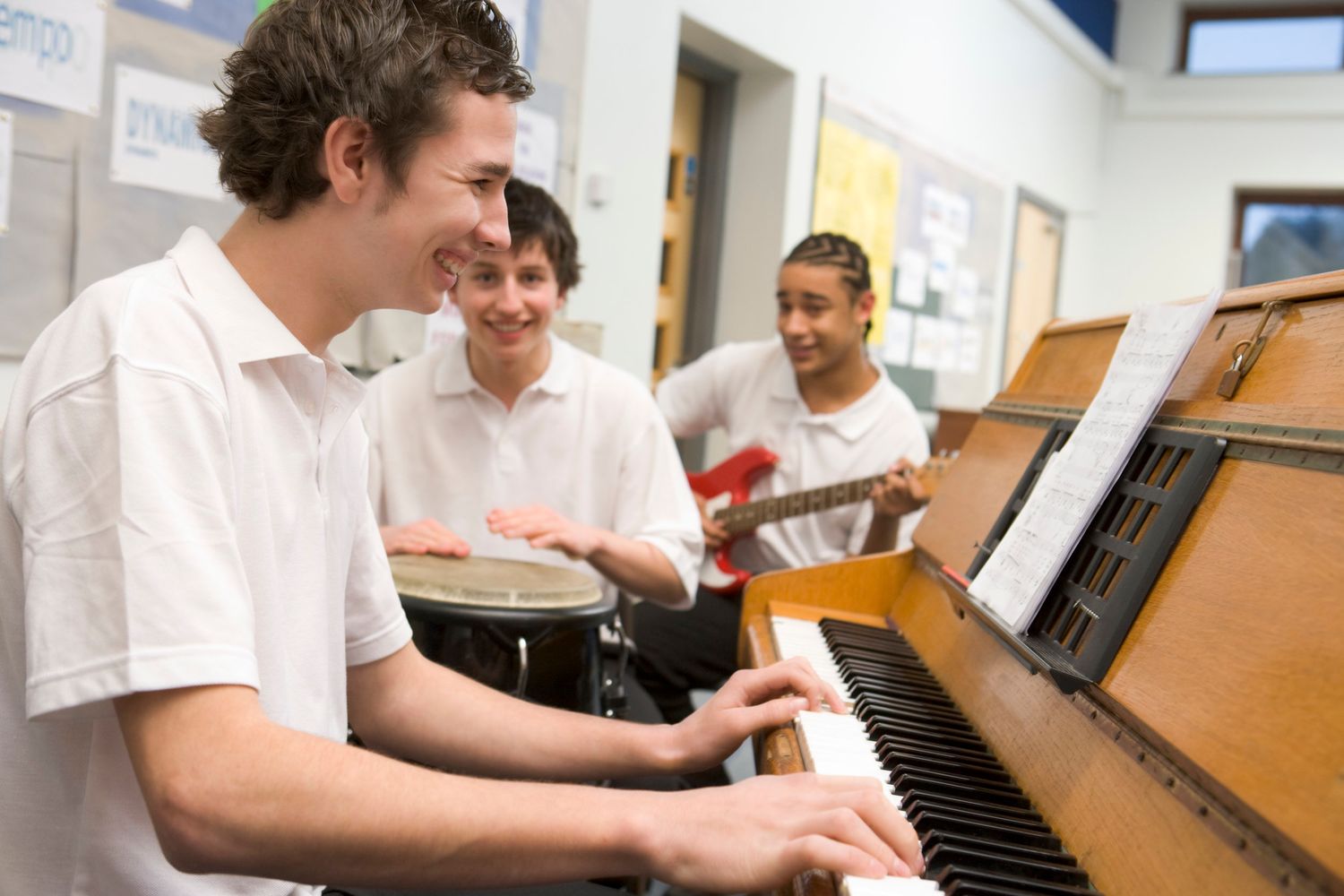

Music Therapy
Reasons Why Music Therapy Should Be Available In Schools
Published: February 1, 2024
Discover the important benefits of music therapy in schools. Enhance students' emotional well-being and cognitive skills through the power of music. Empower future generations with effective and accessible music therapy programs.
(Many of the links in this article redirect to a specific reviewed product. Your purchase of these products through affiliate links helps to generate commission for AudioLover.com, at no extra cost. Learn more)
Table of Contents
- Introduction
- Emotional Benefits of Music Therapy
- Cognitive Benefits of Music Therapy
- Social Benefits of Music Therapy
- Academic Benefits of Music Therapy
- Therapeutic Benefits of Music Therapy
- Increased Engagement and Motivation in Learning
- Improving Communication Skills
- Enhancing Self-expression and Creativity
- Reducing Stress and Anxiety
- Improving Physical Coordination and Fine Motor Skills
- Boosting Overall Well-being
- Conclusion
Introduction
Music has always been a powerful and universal language, capable of evoking emotions, expressing thoughts, and connecting people. But did you know that music can also be used as a form of therapy? Music therapy is a specialized field that harnesses the therapeutic potential of music to improve physical, emotional, cognitive, and social well-being.
In recent years, there has been a growing recognition of the benefits of music therapy, particularly in the field of education. Many schools around the world are now incorporating music therapy programs into their curriculum, recognizing its potential to enhance the overall learning experience and provide invaluable support to students.
Music therapy in schools offers a unique approach to education, focusing not just on academic achievement but also on the holistic development of students. It provides a safe and creative outlet for students to explore their emotions, develop their cognitive abilities, interact with others, and improve their overall well-being.
Now, let’s delve into the various benefits of music therapy in schools, highlighting the reasons why it should be available to all students.
Emotional Benefits of Music Therapy
Music has a unique ability to tap into our emotions and evoke a wide range of feelings. Music therapy in schools harnesses this power to support the emotional well-being of students. Here are some of the key emotional benefits of music therapy:
- Emotional Regulation: Music can help students regulate their emotions by providing a safe and non-threatening medium for self-expression. It allows them to explore and process complex emotions, such as anger, sadness, or anxiety, in a supportive and therapeutic environment.
- Mood Enhancement: Music has the ability to uplift and improve mood. It can bring about feelings of joy, happiness, or relaxation, providing a positive and uplifting experience for students. This can be particularly beneficial for those dealing with stress or negative emotions.
- Stress Reduction: School life can be stressful for students, with academic pressures, social challenges, and personal issues. Music therapy can help alleviate stress by providing a soothing and calming experience. Through techniques such as guided imagery and deep breathing exercises, students can find solace and relief from stressors.
- Self-Reflection and Self-Awareness: Music therapy encourages students to reflect on their emotions, thoughts, and experiences. It promotes self-awareness and helps students gain a deeper understanding of themselves. This can empower students to develop healthy coping mechanisms and make positive changes in their lives.
- Building Resilience: Through music therapy, students can develop resilience and adaptive skills in navigating difficult situations. By engaging with music that resonates with their experiences, they can find strength and inspiration to overcome challenges and build greater emotional resilience.
These emotional benefits of music therapy have a profound impact on students, helping them develop emotional intelligence, cope with stressors, and build strong mental health. By addressing emotions in a supportive and creative way, music therapy in schools plays a crucial role in the overall well-being of students.
Cognitive Benefits of Music Therapy
Music therapy not only impacts our emotions but also has significant cognitive benefits. In a school setting, incorporating music therapy can enhance various aspects of cognitive development. Here are some of the key cognitive benefits of music therapy:
- Memory Improvement: Music has a powerful impact on memory. Whether it’s memorizing lyrics, melodies, or rhythms, engaging with music stimulates the brain areas associated with memory. This can be particularly beneficial for students who struggle with memory retention, as music therapy provides a fun and engaging way to improve their recall abilities.
- Attention and Focus: Playing and listening to music requires concentration and focused attention. Music therapy activities, such as playing an instrument or following a beat, can improve students’ ability to sustain attention and enhance their focus. This can indirectly benefit their academic performance and overall learning outcomes.
- Cognitive Flexibility: Music therapy encourages students to engage in improvisation and creative expression. This requires cognitive flexibility – the ability to think outside the box, adapt, and generate new ideas. By exploring different musical elements and experimenting with various techniques, students can enhance their cognitive flexibility, which can be applied to problem-solving and critical thinking in other areas of their education.
- Language and Communication Skills: Music therapy can promote language development and communication skills in various ways. It exposes students to rich vocabulary, helps them develop their listening skills, and encourages verbal and non-verbal communication through singing or playing instruments. This can be particularly beneficial for students with communication disorders or English language learners.
- Executive Functioning: Engaging with music requires the coordination of multiple cognitive processes, such as planning, organizing, and sequencing. Music therapy activities that involve playing instruments or participating in ensemble performances can improve students’ executive functioning skills, including problem-solving, decision-making, and time management.
These cognitive benefits of music therapy contribute to the overall cognitive development of students. By integrating music therapy in schools, educators can provide valuable opportunities for students to enhance their memory, attention, creativity, language skills, and executive functioning.
Social Benefits of Music Therapy
Music therapy not only has individual benefits but also plays a crucial role in fostering social connections and promoting social skills. In a school setting, music therapy can provide unique opportunities for students to engage with others and develop important social competencies. Here are some of the key social benefits of music therapy:
- Teamwork and Collaboration: Music therapy often involves group activities such as playing in an ensemble or singing together. These activities require students to work together, listen to one another, and coordinate their actions. By engaging in musical collaborations, students develop essential teamwork skills, learn to compromise, and appreciate the contributions of their peers.
- Building Empathy: Music has a powerful way of evoking emotions and fostering empathy. Through music therapy, students have the opportunity to express and share their emotions, while also understanding the emotions of others. This empathy-building aspect of music therapy can contribute to creating a more compassionate and inclusive school community.
- Enhancing Communication and Social Interaction: Music therapy activities encourage communication and social interaction among students. Whether it’s through singing, playing instruments, or engaging in musical improvisation, students learn to communicate their ideas, actively listen to others, and engage in meaningful conversations. This can be particularly beneficial for students who struggle with traditional modes of communication.
- Creating a Positive Peer Culture: Music therapy sessions provide a supportive and inclusive environment where students can connect and form positive relationships with their peers. This can lead to the development of a positive peer culture within the school, where students support and uplift each other, fostering a sense of belonging and connectedness.
- Promoting Cultural Understanding: Music is deeply ingrained in different cultures around the world. Introducing students to music from diverse cultures through music therapy allows them to gain a deeper understanding and appreciation for different traditions and perspectives. This can foster cultural sensitivity and global awareness among students.
By incorporating music therapy in schools, educators can create opportunities for students to develop essential social skills, foster empathy, enhance communication, and build positive relationships with their peers. These social benefits contribute to the overall social and emotional well-being of students, creating a supportive and inclusive school environment.
Academic Benefits of Music Therapy
Music therapy not only has a profound impact on students’ emotional and social well-being but also offers numerous academic benefits. Integrating music therapy into the school curriculum can enhance various aspects of learning and academic performance. Here are some of the key academic benefits of music therapy:
- Improved Learning Retention: Engaging with music stimulates various areas of the brain involved in memory and learning. By incorporating music into academic lessons, students are more likely to retain and recall information. Whether it’s through songs, rhymes, or rhythm-based activities, music therapy aids in enhancing learning retention across multiple subjects.
- Enhanced Cognitive Skills: Playing an instrument or engaging in music activities requires the coordination of multiple cognitive processes, such as attention, memory, and executive functions. Through regular music therapy sessions, students can sharpen their cognitive skills, which can have a positive impact on their academic performance in areas such as problem-solving, critical thinking, and analytical reasoning.
- Improved Mathematical and Spatial Reasoning: Music is inherently mathematical and spatial. Learning to read musical notation, understanding rhythm, and recognizing patterns in music can improve students’ mathematical and spatial reasoning abilities. This can have a transfer effect, benefiting their performance in subjects such as mathematics, geometry, and physics.
- Enhanced Verbal and Language Skills: Singing, listening to music, and engaging in music-based language activities can enhance students’ verbal and language skills. Music therapy provides a playful and engaging context for students to practice language development, including vocabulary, pronunciation, and syntax. This can benefit their overall verbal communication skills and literacy development.
- Improved Concentration and Focus: Engaging in music requires students to concentrate, focus their attention, and follow instructions. Music therapy activities that involve playing instruments or participating in ensemble performances can improve students’ ability to sustain attention and enhance their focus. This can indirectly benefit their academic performance by improving their concentration in the classroom.
The academic benefits of music therapy are significant and can positively impact students’ learning outcomes. By integrating music therapy into the school environment, educators can create a rich and dynamic learning experience that supports academic growth and enhances students’ overall academic performance.
Therapeutic Benefits of Music Therapy
Music therapy offers a wide range of therapeutic benefits, making it a valuable addition to the school environment. These therapeutic benefits can support the overall well-being of students and help them navigate through various challenges they may face. Here are some of the key therapeutic benefits of music therapy:
- Emotional Release and Regulation: Music can serve as a powerful emotional outlet, allowing students to express and release their emotions in a safe and nonverbal manner. Through music therapy, students can learn techniques to regulate their emotions, cope with stress, and find a sense of inner calm.
- Self-Expression and Identity Development: Music therapy encourages self-expression and exploration of individual identity. Students can use music to convey their thoughts, feelings, and personal experiences, fostering a sense of identity and self-discovery. This can be particularly beneficial for students who may struggle to express themselves through traditional means.
- Building Resilience and Coping Skills: Music therapy provides an opportunity for students to develop resilience and coping skills. Through engaging with music, students can find strength, motivation, and inspiration to overcome challenges. They can learn healthy coping mechanisms and develop strategies to manage stress and adversity.
- Improving Self-esteem and Confidence: Musical accomplishments and self-expression can boost self-esteem and confidence in students. As they develop musical skills, perform in front of others, and receive positive feedback, students gain a sense of achievement and confidence in their abilities. This can extend beyond the music therapy setting and positively impact their overall self-esteem.
- Trauma Healing and Emotional Support: Music therapy can be a powerful tool for healing and providing emotional support, particularly for students who have experienced trauma or adverse life events. Music can help process and release trauma-related emotions, provide comfort, and promote healing and resilience.
These therapeutic benefits of music therapy contribute to the overall well-being of students, fostering emotional resilience, self-expression, and personal growth. By incorporating music therapy in schools, educators can create a nurturing and supportive environment that helps students navigate through challenges and promotes their overall mental health.
Increased Engagement and Motivation in Learning
Music therapy in schools has a remarkable impact on student engagement and motivation in the learning process. Incorporating music therapy activities into the curriculum provides a creative and interactive approach to learning, which brings numerous benefits. Here are some ways in which music therapy increases engagement and motivation in learning:
- Multi-Sensory Experience: Music therapy engages multiple senses, including auditory, visual, and kinesthetic. When students participate in music-based activities, they experience a holistic learning experience that stimulates various sensory pathways. This multi-sensory approach fosters deeper engagement and enhances their overall learning experience.
- Personal Relevance: Music therapy activities can be tailored to the specific interests, preferences, and experiences of students, making the learning material more personally relevant to them. This personal connection increases student engagement as they feel a sense of ownership and connection to the material being taught.
- Active Participation: Music therapy invites active participation from students. Whether it’s playing instruments, singing, dancing, or creating music, students become active learners rather than passive recipients of information. This hands-on involvement promotes engagement, as students are actively involved in the process of discovery and learning.
- Enhanced Creativity: Music therapy encourages students to think creatively and explore their own ideas. When students engage in improvisation, composition, or musical interpretation, they tap into their creative potential, fostering a sense of curiosity and motivation to explore new possibilities.
- Interactive Learning Environment: Music therapy creates a dynamic and interactive learning environment. Group activities, ensemble performances, and collaborative music-making foster social interaction and peer learning, making the learning experience more engaging and enjoyable.
- Positive Emotional Connections: Music has the power to evoke emotions and create positive associations. When students engage in music therapy activities, they experience joy, excitement, and satisfaction, which creates positive emotional connections to the learning process. This emotional engagement impacts their motivation, making them more eager to participate and learn.
By integrating music therapy into the school curriculum, educators can harness the power of music to increase student engagement and motivation in learning. Students will be more actively involved in the learning process, feel a personal connection to the material, and experience a sense of joy and fulfillment as they engage with music in an educational context.
Improving Communication Skills
Music therapy in schools provides a unique opportunity to enhance communication skills in students. Through engaging with music, students can develop various aspects of communication, including verbal and non-verbal expression, active listening, and social interaction. Here are some ways in which music therapy improves communication skills:
- Verbal Expression: Singing, chanting, and using lyrics in music therapy sessions promote verbal expression. Students learn to articulate words clearly, improve pronunciation, and develop their vocabulary through engaging with music. This leads to improved verbal communication skills both within the music therapy sessions and in their daily interactions.
- Non-Verbal Expression: Music therapy allows students to express themselves non-verbally, providing an alternative means of communication. Through body movement, gestures, facial expressions, and using instruments, students can convey their thoughts and feelings in a non-verbal manner. This enhances their ability to express themselves effectively in various communication contexts.
- Active Listening: Engaging with music requires active listening skills. In music therapy, students learn to pay attention to the nuances of tone, rhythm, and melody. This develops their ability to listen attentively, focus on auditory cues, and comprehend and process verbal and non-verbal information effectively.
- Social Interaction: Music therapy activities often involve group participation and collaboration. Students learn to communicate and interact with their peers, taking turns, coordinating their actions, and listening to others. This social interaction fosters essential communication skills, such as turn-taking, active listening, and expressing oneself in a group setting.
- Emotional Expression: Music therapy provides a safe and supportive environment for students to express their emotions. This allows students to practice identifying and communicating their feelings, helping them develop emotional intelligence and the ability to accurately convey their emotions to others.
- Empathy and Understanding: Engaging with music can foster empathy and understanding in students. As they listen to and interpret music from different cultures and perspectives, they develop a broader understanding of diverse experiences and perspectives. This cultivates empathy and enhances their ability to communicate and connect with individuals from different backgrounds.
By incorporating music therapy into the school curriculum, educators can help students improve their communication skills. Through music, students develop the ability to express themselves effectively, actively listen, engage in social interactions, and foster empathy and understanding. These communication skills are invaluable for academic success, building relationships, and navigating the complexities of the world.
Enhancing Self-expression and Creativity
Music therapy in schools provides a powerful platform for enhancing self-expression and creativity in students. Through engaging with music, students can tap into their inner creativity, explore their unique voice, and express themselves in meaningful ways. Here are some ways in which music therapy enhances self-expression and creativity:
- Exploration of Personal Identity: Music therapy encourages students to explore their personal identity and express their individuality. Through music-making, students have the opportunity to reflect on their emotions, beliefs, values, and experiences, allowing them to develop a stronger sense of self and express their authentic selves.
- Creative Improvisation: Engaging in improvisation activities during music therapy sessions empowers students to think creatively and spontaneously. They learn to trust their instincts, take risks, and explore new possibilities, fostering a sense of freedom and creativity in their self-expression.
- Composition and Songwriting: Music therapy provides a space for students to create their own music and lyrics. This creative process allows them to communicate their thoughts, feelings, and experiences in a unique and personal way. It encourages originality and fosters a sense of ownership over their creative work.
- Visual Art and Movement: Music therapy can incorporate other forms of creative expression, such as visual art and movement. Students can engage in art activities like drawing or painting while listening to music, or they can explore movement and dance in response to musical rhythms. These additional creative outlets further enhance self-expression and creativity.
- Improving Problem-Solving Skills: Engaging with music in a creative context requires students to think critically, solve problems, and make decisions. Whether it’s learning a new song, improvising a melody, or arranging a piece of music, students develop problem-solving skills that can be transferred to other academic areas.
- Building Confidence: Music therapy provides a supportive and non-judgmental environment where students can take risks and express themselves freely. As they receive positive feedback and encouragement, their confidence in their creative abilities grows, empowering them to explore new ideas and take creative risks beyond the music therapy setting.
By incorporating music therapy into the school curriculum, educators can unlock the potential for self-expression and creativity in students. Music therapy provides students with a safe and supportive space to explore their creativity, discover their unique voice, and express themselves authentically. These skills are not only enriching for personal growth but also essential for innovation, problem-solving, and engagement in various aspects of life.
Reducing Stress and Anxiety
Music therapy in schools offers a powerful tool for reducing stress and anxiety in students. The soothing and calming effects of music can help students relax, manage their emotions, and alleviate the pressures they may face in their academic and personal lives. Here are some ways in which music therapy reduces stress and anxiety:
- Mood Regulation: Music has the ability to influence our mood and emotions. Engaging with calming and soothing music in music therapy sessions can help students regulate their emotions, reducing feelings of stress and anxiety.
- Stress Relief: School life can be demanding, with academic pressures, social dynamics, and personal challenges. Music therapy provides a safe and nonjudgmental space for students to release stress and tension. Through activities such as listening to relaxing music, practicing deep breathing, and engaging in guided imagery, students can experience relief from stress and anxiety.
- Relaxation and Mindfulness: Music therapy incorporates relaxation techniques such as progressive muscle relaxation and mindfulness practices. By focusing on the rhythmic patterns or melodies of music, students can enter a state of relaxation and be present in the moment, letting go of stress and anxiety.
- Emotional Expression: Music therapy allows students to express their emotions in a nonverbal way. Through music, they can release pent-up emotions and find solace. This emotional expression serves as a cathartic outlet, reducing emotional distress and promoting a sense of inner calm.
- Distraction and Escapism: Engaging with music provides a pleasant distraction from stressors and worries. Students can immerse themselves in the melodies, rhythms, and lyrics, momentarily escaping from their concerns and focusing on the positive aspects of the music.
- Promoting Relaxation Response: Music therapy has been shown to activate the body’s relaxation response, which counteracts the physiological effects of stress. This can lead to lower heart rate, reduced blood pressure, and a sense of calmness and tranquility.
By integrating music therapy into the school environment, educators can provide a valuable resource for students to manage stress and anxiety. Music therapy offers a holistic approach to reducing stress, helping students relax, find emotional release, and cultivate a sense of inner peace in the midst of their busy lives.
Improving Physical Coordination and Fine Motor Skills
Music therapy in schools has a positive impact on students’ physical coordination and fine motor skills. Engaging with music, whether through playing instruments or participating in movement activities, requires precision, timing, and coordination. Here are some ways in which music therapy improves physical coordination and fine motor skills:
- Instrumental Playing: Learning to play musical instruments in music therapy sessions enhances students’ fine motor skills. It requires finger dexterity, hand-eye coordination, and precise movements. Regular practice improves their ability to coordinate finger movements and develop fine motor control.
- Rhythm and Timing: Music therapy activities often involve rhythmic exercises and timing exercises. Students learn to synchronize their movements with the beat, improving their overall coordination and sense of timing. This can have a positive impact on their general motor skills and physical coordination.
- Gross Motor Movement: Movement-based activities, such as dancing or marching to music, promote gross motor skills. Students learn to coordinate their large muscle groups, develop balance and spatial awareness, and improve overall physical coordination. This has a direct impact on their ability to navigate the physical world around them.
- Fine Motor Manipulation: Manipulating small objects, such as picking up and playing small percussion instruments, enhances fine motor skills. Students practice grasping, pinching, and manipulating objects with precision, leading to improved fine motor control, hand-eye coordination, and finger strength.
- Hand-Drumming: Engaging in hand-drumming activities, such as playing hand drums or tambourines, requires coordinated movements of the hands and fingers. This enhances students’ motor skills, finger coordination, and bilateral integration, which can have positive effects beyond the music therapy sessions.
- Music and Movement Coordination: Combining music and movement in music therapy sessions improves overall coordination. Students learn to synchronize their movements with the music, integrating their motor skills with auditory cues. This coordination of movement and music fosters a sense of embodiment and improves overall physical coordination.
By incorporating music therapy into the school curriculum, educators can provide a holistic approach to developing physical coordination and fine motor skills. Music therapy activities that involve instrumental playing, rhythmic exercises, and movement-based activities promote precision, coordination, and fine motor control, contributing to students’ overall physical development.
Boosting Overall Well-being
Music therapy in schools has a profound impact on students’ overall well-being. By harnessing the therapeutic power of music, music therapy programs contribute to various aspects of students’ physical, emotional, and social well-being. Here are some ways in which music therapy boosts overall well-being:
- Emotional Regulation: Music therapy provides a safe space for students to explore and regulate their emotions. Engaging with music helps students process and express complex emotions, reducing emotional distress and promoting emotional well-being.
- Mental Health Support: Music therapy can be an effective form of support for students dealing with mental health challenges such as anxiety, depression, or trauma. It provides an outlet for emotional expression, promotes relaxation, and aids in building resilience.
- Stress Reduction: The calming and soothing effects of music therapy help students manage stress and reduce anxiety. Through relaxation techniques and music-based activities, students experience a sense of tranquility and learn coping strategies to navigate stressful situations.
- Social Connection: Music therapy fosters social connection and a sense of belonging. Group activities and ensemble performances provide opportunities for students to connect with their peers, develop friendships, and build a supportive community within the school.
- Self-Confidence and Self-Esteem: Music therapy activities empower students to explore their creativity, express themselves, and develop their talents. As students gain confidence in their musical abilities, their overall self-confidence and self-esteem improve.
- Physical and Motor Skills: Engaging in music-making involves fine motor skills, rhythm, and coordination. Through instrumental playing, movement-based activities, and hand-drumming exercises, students improve their physical coordination, motor skills, and overall physical well-being.
- Academic Performance: The cognitive benefits of music therapy, such as improved memory retention, attention, and problem-solving skills, contribute to students’ academic performance. By enhancing cognitive abilities, music therapy supports overall academic success.
- Creative Expression: Music therapy nurtures students’ creativity and provides a platform for self-expression. By exploring music, composing songs, and engaging in improvisation, students develop their artistic abilities and cultivate a sense of joy and fulfillment.
- Self-Care and Wellness: Through music therapy, students learn the importance of self-care and well-being. They develop skills and techniques that they can use outside the music therapy sessions, helping them manage stress, promote relaxation, and prioritize their own health and well-being.
By integrating music therapy into the school environment, educators prioritize the overall well-being of students. Music therapy’s impact on emotional health, social connection, self-confidence, physical well-being, and academic performance contributes to a holistic approach to fostering the well-being of students.
Conclusion
Music therapy is a valuable and transformative tool that should be available in schools for the myriad benefits it offers to students. Whether it’s enhancing emotional well-being, improving cognitive skills, fostering social connections, boosting academic performance, or promoting overall well-being, music therapy has a profound impact on students’ lives. Through engaging with music, students have the opportunity to explore their emotions, develop important skills, and express themselves in meaningful ways.
Music therapy in schools provides a safe and inclusive environment where students can experience the therapeutic potential of music. It offers a holistic approach to education, addressing not only academic achievement but also the social, emotional, and physical development of students. By integrating music therapy into the school curriculum, educators create an environment that nurtures creativity, enhances communication, reduces stress, and fosters a sense of belonging.
Moreover, music therapy in schools has the potential to reach all students, regardless of their abilities or backgrounds. It can be adapted to meet the unique needs of different individuals, including those with special needs or learning difficulties. It provides a platform for self-expression, nurtures self-confidence, and encourages students to embrace their individuality.
In conclusion, the incorporation of music therapy in schools is essential for providing a comprehensive and enriching education. The emotional, cognitive, social, and therapeutic benefits of music therapy contribute to the overall well-being and personal growth of students. By making music therapy available to all students, we create a more inclusive and supportive educational environment, empowering students to thrive academically, emotionally, and creatively.

